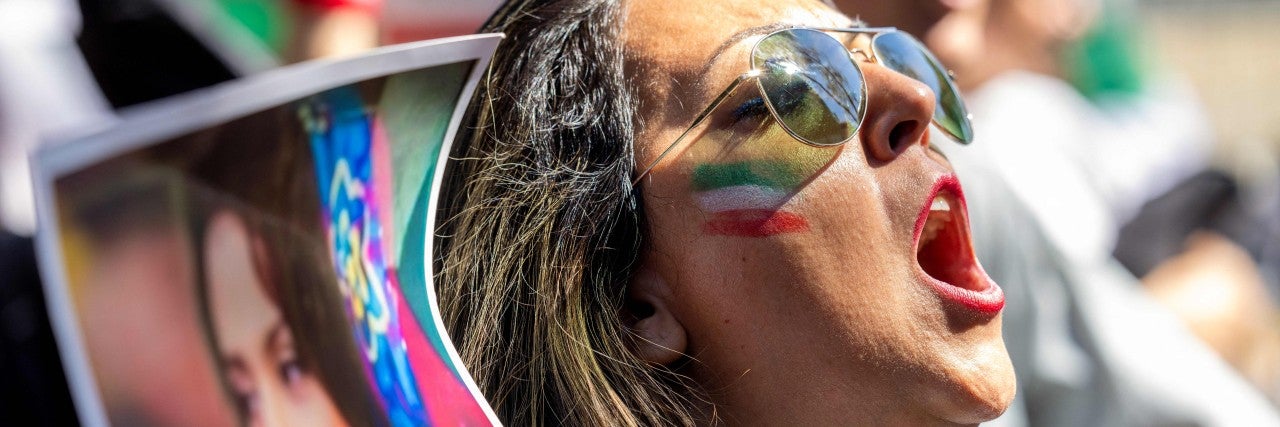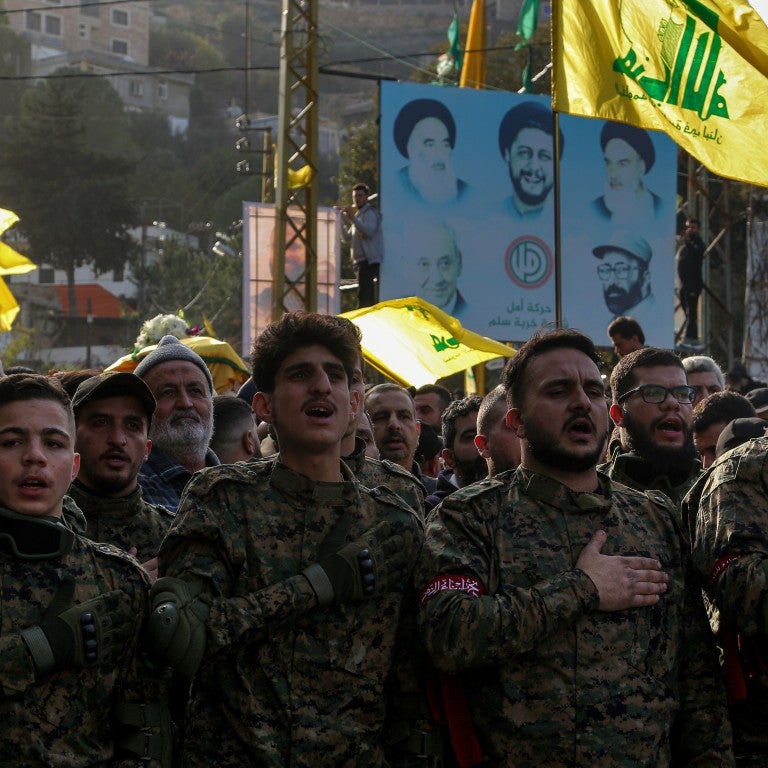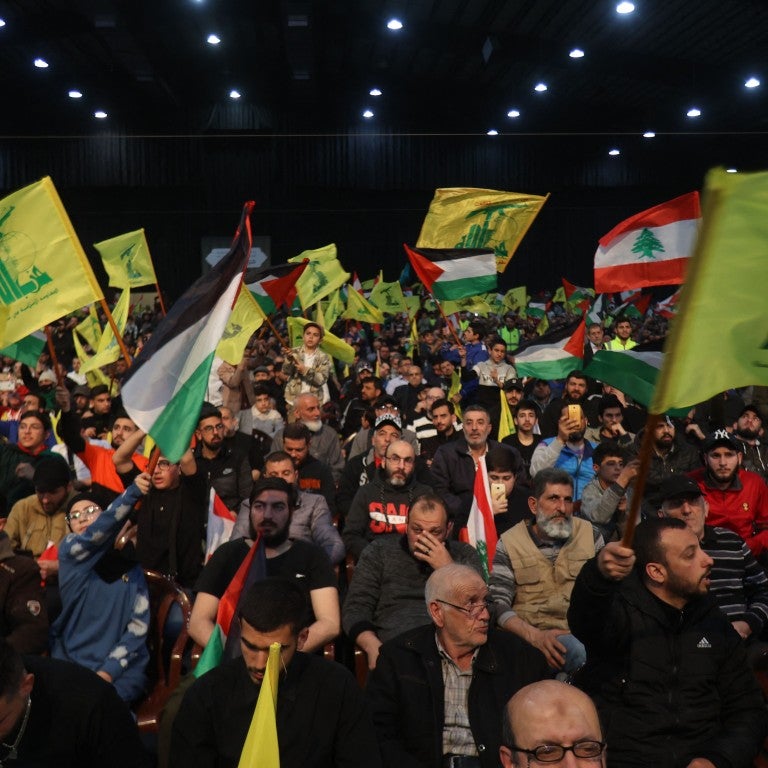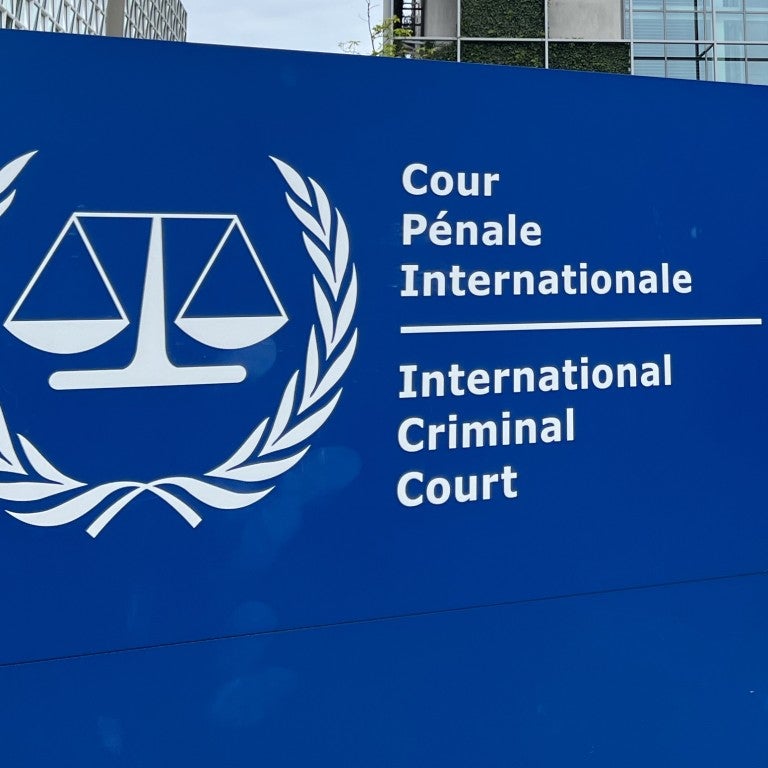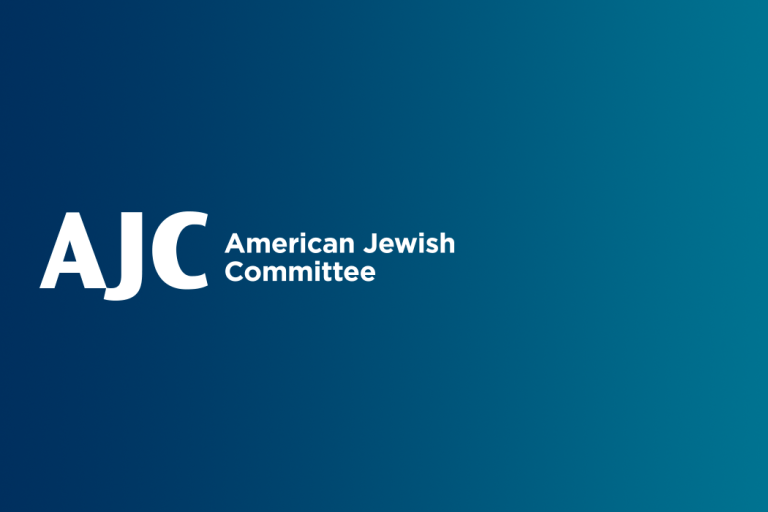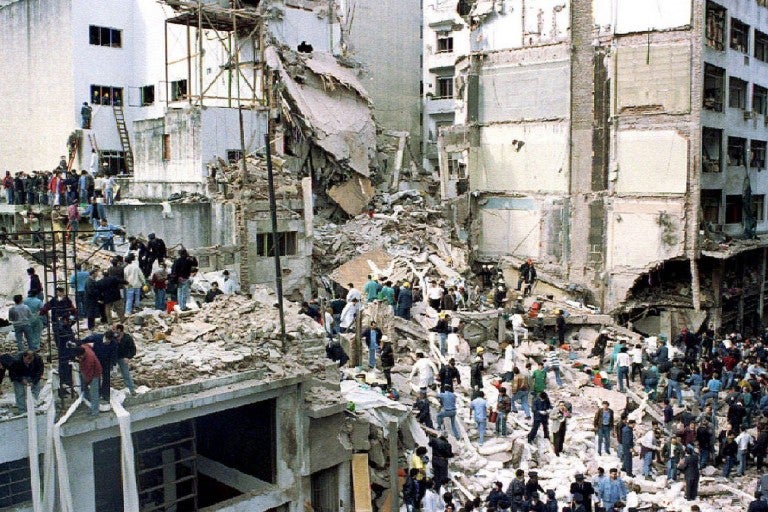April 17, 2024
Murder, arbitrary imprisonment, torture, rape, persecution, and enforced disappearance. These are among the crimes the Iranian regime inflicted against thousands of its citizens who dared to voice their opposition to the regime’s systematic discrimination against women and girls.
All this was confirmed by a damning report published recently by an independent international fact-finding mission established by the United Nations Human Rights Council following the brutal crackdown on protesters that began in September 2022.
In a 490-page paper summarized in a 20-page report, the independent fact-finding mission found the regime responsible for the “unlawful death” of Jina Mahsa Amini, a 22-year-old Iranian-Kurdish woman who died in the custody of Iran’s morality police after they arrested her for violating Iran’s strict dress codes for women. Her death in September 2022 sparked more than a year of protests across the Islamic Republic.
The mission determined that Iranian officials violated the human rights of protesters, including children, journalists, advocates, as well as family members and lawyers of victims with the knowledge and support of Iran’s most senior officials.
Here is what the mission uncovered.
Systematic discrimination against Iranian women fueled widespread protests, violent response
The UN fact-finding mission described the Iranian regime’s crackdown on protests as “a series of extensive, sustained, and continuing human rights violations, directed against women, girls, and persons expressing support for gender equality and the rights of women and girls.” This crackdown, the mission said, cumulatively amounts to the crime against humanity of gender persecution.
In meticulous detail, the fact-finding mission’s report recounts the history that preceded the protest movement dubbed “Woman, Life, Freedom,” demonstrating that the crackdown-related violations committed by the regime since 2022 did not occur in isolation. Rather, they were the culmination of a decades-long legacy of practices imposed by the regime since the 1979 Islamic Revolution.
This “institutionalized system of discrimination” has severely deprived Iranian women and girls of “a broad range of fundamental rights, including the right to life, the right to be free from torture, to freedom of expression, to freedom of religion, to public life, to bodily integrity and autonomy, and to access to education and to health care.” Iran’s authorities have regularly enforced these discriminatory laws through violent measures, including murder, imprisonment, torture, rape, and other forms of sexual violence.
State-sponsored violence aimed to crush dissent
Use of excessive force and gender-based violence against protesters
Testimonies gathered by the fact-finding mission revealed that security forces specifically targeted women for violent treatment. In one case, security forces shouted at a group of protesters in a city in a northern province that “there is not such a thing as Woman, Life, Freedom… you will see now” before they shot at them.
The fact-finding mission discovered a chilling pattern of ocular injuries, resulting in the partial or full loss of eyesight for the victims, “essentially branding them as protesters for the rest of their lives.”
The Mission deemed “credible” reports that security forces had killed up to 550 protest participants and bystanders, among them dozens of women and children, by September 2023.
Rather than acknowledging these deaths, the Mission found that Iranian authorities claimed that any men and boys killed were violent rioters, terrorists, or separatists; attributed most deaths of women and girl protesters to other causes; and then threatened the families of victims that they too would be arrested unless they supported the authorities’ accounts.
Arbitrary arrest and detention, including enforced disappearance
The Mission documented numerous cases in which Iran’s security forces arbitrarily arrested women, children, and men for protesting peacefully, dancing, chanting, writing slogans on walls, honking car horns, seeking to uncover the truth about protest-related violations, and expressing solidarity with protesters.
In response to the overwhelming support that children expressed for the “Woman, Life Freedom” movement, Iran’s security forces reportedly carried out “massive” arbitrary arrests and detention of school children, some as young as ten years old, held incommunicado for hours, days and sometimes weeks, in official and unofficial secret detention places.
In some cases, the authorities concealed the fate or the whereabouts of the detainees from their families, constituting enforced disappearances.
The mission also identified nine individuals who, after sham judicial proceedings, were executed by the regime for so-called “crimes” that should not carry the death penalty.
Torture and cruel treatment, including sexual violence
Less than a week after another UN report validated the horrific crimes committed against women by Hamas during the October 7 terror attacks on Israel, the UN report revealed a strikingly similar pattern of sexual violence carried out by Iran’s security forces in order to silence and punish protesters and their supporters.
The Mission found that State agents belonging to the Basij, police, IRGC, the Ministry of Interior, and the Ministry of Intelligence committed sexual and gender-based violence at a large scale, documenting cases of rape and other forms of sexual and gender-based violence committed against men, women and children protesters as young as 12 years old in 14 different provinces in Iran.
In addition, to extract confessions, Iran’s officials reportedly subjected many detainees to physical assaults as well as burning, electric shocks, suspension and stress positions, waterboarding, and psychological torture.
Disproportionate impact on minorities
Though deaths were reported across the country, the mission found that Iran’s Kurdish and Baluchi minority communities were grossly overrepresented among those killed, a result of the deep-rooted discrimination against ethnic minorities in Iran.
Iranian authorities also accused the long-persecuted Baha’i religious minority community of initiating the “Woman, Life, Freedom” movement, leading to a surge in arrests and detentions, especially of Baha’i women, following the protests.
Responsibility for violence at the highest levels
The patterns of organized conduct documented by the UN mission led it to accuse high-level authorities up to the Supreme Leader Ali Khamenei of overseeing and carrying out violations amounting to “crimes against humanity,” as defined by the Rome Statute of the International Criminal Court, against their citizens.
It also said the crimes it documented “were within the effective responsibility of high-level authorities “including…members of the security councils.” There are various “Security Councils” in Iran, but a key one described by the Fact-Finding Mission’s report is the Supreme Council for National Security, chaired by President Ebrahim Raisi.
While the identities of the other individual alleged perpetrators identified by the Mission were recorded only on a confidential list, which is the usual practice of similar UN mechanisms, the Fact-Finding Mission suggested that it also includes senior leaders of Iran’s Islamic Revolutionary Guard Corps, an elite militia charged with protesting Iran’s fundamentalist regime, the Ministry of Intelligence, national police, morality police, militias, prosecutors, and judges.
Violent retaliation against Iranian women, journalists, and dissenters continues
Regrettably, the Fact-Finding Mission’s report also confirms that rather than heeding women’s calls for equality and justice, Iran’s authorities have only escalated their pervasive repression against women and girls across the country.
As the “morality police” have returned to the streets, the number of cases of women charged with violating the mandatory hijab laws has increased dramatically. Violators face systematic harassment, intimidation, and harsher punishments, including State-sanctioned flogging. Female students have been suspended or dismissed from academic programs. Iran’s security forces also have used sexual violence with impunity.
The Mission also documented an ongoing pattern of harassment by Iranian authorities against journalists, lawyers, artists, and other people of influence who expressed support for protesters or shared information about acts of violence committed against dissenters.
Similarly, the Mission reported that official harassment of family members of victims of protest violations continues unabated, and that they are subjected to arrest, torture and intimidation, imprisonment, dismissal from work and school and/or termination of retirement benefits if they refuse to repeat the security forces’ narrative about what happened to their loved ones or attempt to gather and commemorate their lives.
Iran’s people must not be forgotten
Despite the Fact-Finding Mission’s damning findings, Iran’s deadly and systematic repression remains far from the headlines.
As the Fact-Finding Mission’s Chair, Sara Hossain, warned the UN Human Rights Council on March 18, “repression in Iran is ongoing while the world’s attention is turned elsewhere, against the women & men who sought change and continue to seek justice.”
American Jewish Committee (AJC) has long been urging government leaders and the international community to speak out against Iran’s flagrant human rights abuses and to echo the determination by the UN Special Rapporteur on human rights in Iran that Iran’s crackdown against protesters may amount to crimes against humanity. AJC advocated for and welcomed the UN Human Rights Council’s November 2022 condemnation of the regime’s conduct and creation of a new Independent Fact Finding Mission on Iran to investigate the violations committed since the beginning of the protests.
On April 4, the UN Human Rights Council approved a resolution to extend the international fact-finding mission investigating Iran’s deadly crackdown on protests and the mandate of the special rapporteur on Iran, Javaid Rehman. The Council said that the extension for Rehman was necessary to “continue to monitor the ongoing situation of human rights, including civil, political, economic, social and cultural rights.”
